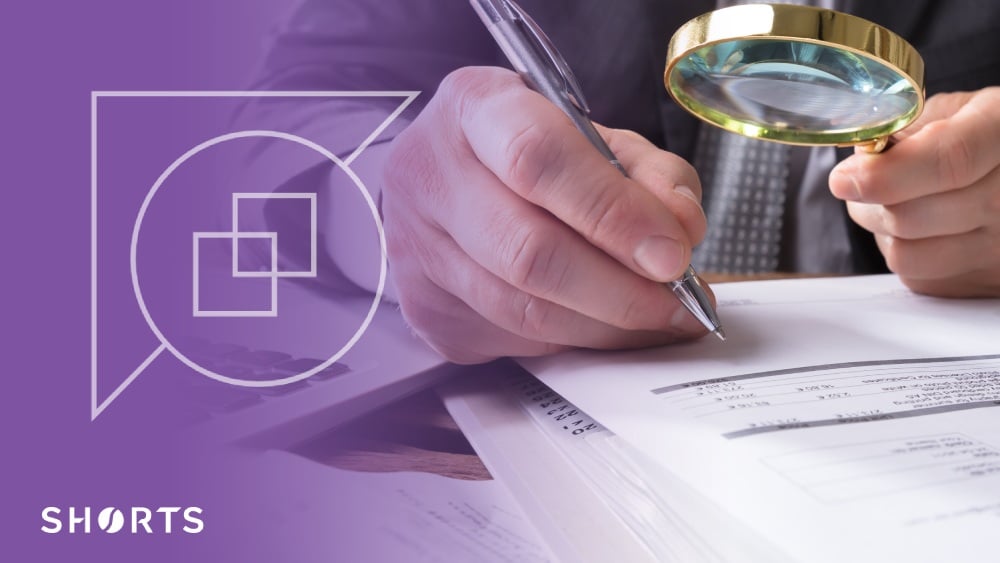
Welcome to our comprehensive guide to VAT inspections and investigations, featuring the most important information you should know about the enquiries HMRC may make into your VAT affairs. If you have any immediate concerns about VAT inspections, or are currently under investigation, we strongly recommend contacting our team for advice.
Do you need help with an HMRC VAT inspection?A VAT inspection or investigation can be an extremely stressful period of time – even if there has been no known wrongdoing! With adequate preparation, communication, and the right advice, however, a VAT inspection doesn’t have to be a nightmare. Our team has a wealth of experience in helping companies navigate VAT enquiries and avoid possible penalties or criminal prosecution. If you are currently under VAT investigation or if HMRC contact you to arrange a VAT inspection, we strongly recommend talking to our specialist VAT team as soon as possible for advice. If you would like us to deal with the inspection on your behalf, we can do this with agreement from HMRC.
|
What is a VAT inspection?
A VAT inspection involves HMRC contacting or visiting your business in order to inspect its VAT records. This inspection is a series of compliance checks, and is designed to ensure that the business is paying the correct amount of VAT.
Usually, a business will be contacted in advance of a visit from HMRC to arrange a mutually convenient time to carry out the inspection; however, in some cases they may also visit without warning or appointment.
What can trigger a VAT inspection?
It is impossible to predict exactly what may trigger a VAT inspection or more detailed investigation – they can occur seemingly at random but will likely be linked to one of the following triggers.
- Your business failed a “credibility check” carried out on one or more of your VAT returns
- Your business operates in a higher-risk sector (according to HMRC)
- HMRC may have received suspicious information relating to your business and its VAT returns.
- HMRC noted abnormally large increases in VAT claims, or VAT claims where there previously were none. A first VAT return will almost always trigger an enquiry if it shows a net repayment.
- Your compliance history includes late or non-payments of VAT, penalties, or other anomalies.
HMRC have several highly efficient systems, including ‘Connect’ software, capable of tracing small discrepancies in all kinds of tax returns, including VAT.
Are VAT inspections common?
The frequency of VAT inspections will vary for every business, and it is not possible to predict how often HMRC will launch an investigation into your VAT records. Generally, how often you are inspected by HMRC in connection with VAT will depend on your VAT Return history (whether you have previously submitted late or incorrect VAT Returns), or the size or complexity of your business.
One thing is for certain, however; HMRC enquiries into all taxes are increasing. In the UK government’s June 2025 Spending Review, it was announced that HMRC will receive £1.7bn over the next four years to fund 5,500 extra compliance staff and 2,400 extra debt management staff.
Businesses should therefore expect VAT investigations to be more likely in the coming months and years.
How far back can HMRC investigations go?
HMRC can only inspect records going back 4 years unless the inspection identifies fraudulent activity. If fraud is suspected, HMRC can inspect records going back 20 years. However, a VAT inspector may only want to look at one VAT return if the entitlement to a repayment of VAT is being verified.
How long does a VAT inspection take?
An HMRC enquiry into VAT or any other tax can, in theory, last as long as is necessary to determine the required outcome.
Depending on the size and complexity of your business, a visit to your premises to inspect your VAT records would normally vary between 1 and 4 days. At the end of the visit, the inspector may have outstanding queries and request further information from you. You will normally be given up to 30 days to provide this information.
The potential duration of an HMRC inspection relates to the nature of the enquiry. For instance, an enquiry into one VAT return will be concluded more quickly than an inspection covering a 4 year period.. Errors whether due to negligence or oversight may lead to the inspection taking longer
The worst case scenario will be if HMRC identifies an error that it suspects is a deliberate attempt to evade tax. This could lead to a prolonged investigation and may result in all the tax affairs of the business being investigated.
Can HMRC investigate dissolved companies for VAT?
HMRC enquiries can target dissolved companies, even if they have been struck off the Companies House register. If HMRC suspects that a dissolved company’s tax affairs were not in order, they may choose to restore the company to the register and investigate it.
However, a VAT investigation into a dissolved company would usually only take place in conjunction with an investigation into other taxes. Also, it is unlikely that HMRC will investigate a dissolved company unless significant sums of money are involved, or if the directors of the dissolved company are themselves being investigated.
If the investigation demonstrates a deliberate, negligent, or fraudulent attempt to underpay VAT prior to the dissolution of the company, HMRC can demand arrears from the directors personally.
What happens if errors are discovered on a VAT inspection?
Depending on the severity and nature of the error, you will either be asked to make an adjustment on a subsequent VAT return, rectifying the mistake in your next submission, or you will be issued with an assessment.
An assessment is a formal notice from HMRC detailing the discrepancies found and the additional VAT owed. If you are issued with an assessment, it is important to act promptly, as you will also have to pay interest on the underpaid VAT from the date it should have been paid. Penalties may be imposed based on the severity of the error. These penalties are tiered and reflect whether the error was deemed careless, deliberate, or fraudulent.
Careless errors, while still penalised, are typically treated more leniently than deliberate or fraudulent attempts to underpay VAT. Therefore, the financial repercussions can vary significantly, and it is crucial to consult an expert if faced with a VAT inspection.
What happens at the end of the VAT inspection?
Once the VAT inspection has been concluded you will receive a letter or email from HMRC covering:
- What you must do, if anything, to improve your VAT record-keeping
- Any corrections you must make to your VAT account
- If you have overpaid or underpaid your VAT
- Any penalty you must pay
VAT errors can be costly, both in time and in money. If a business doesn’t submit their VAT return by the deadline or fail to pay the full amount of VAT owed, penalties may apply.
Penalties for defaulting on VAT
Late submission penalties work on a points-based system.
Each VAT return which is submitted late, results in a penalty point until the penalty point threshold is reached.
When the threshold is reached, HMRC issue a £200 penalty. Further £200 penalties are issued for each subsequent late submission whilst the threshold remains breached,
Late payments
If a VAT return is paid late, interest is charged from the first day that the payment is overdue until the day it’s paid in full. Interest is calculated at the Bank of England base rate plus 4%.
In addition to charging interest on late payment of a VAT return, HMRC also charge interest on:
- An amendment or correction of a return
- A VAT assessment made by HMRC
- A missed VAT payment on account
- Overdue payment of late payment penalties for late payment of VAT
- Overdue payment of late submission penalties for not submitting a return on time
As well as late submission penalties, businesses may also be charged the following penalties by HMRC:
- If a business submits a VAT return that contains an inaccuracy (deliberate or careless), they can be charged up to 100% of any under-stated or over-claimed VAT.
- If a business fails to notify HMRC within 30 days that a VAT assessment is less than its VAT liability, it can be charged up to 30% of the assessment.
- If a business submits a paper return rather than an online return, it will be charged between £100 and £400 depending on the turnover of the business.
- If a business fails to register for VAT at the correct time, it will be issued a penalty based upon the VAT due from the date it was required to be registered and the date the liability to register was notified to HMRC. Penalties range from 5% to 15% depending on how late the notification is made.
What happens if I disagree with an assessment and/or penalty issued by HMRC?
You can write to HMRC within 30 days to request a review or submit an appeal to the First-tier Tribunal.
A review is carried out by a member of HMRC who is unconnected with your case. HMRC have 45 days to carry out the review.
If you are not satisfied with the decision of the reviewer, you have 30 days from the review decision to submit an appeal to the First-tier Tribunal. Alongside this, or earlier in the course of the investigation, you can request alternative dispute resolution (ADR).
What is a First-tier Tribunal?
The First-tier Tribunal (Tax) is the mechanism available to challenge a decision made by HMRC regarding VAT or other tax disputes. This tribunal operates independently of
HMRC, providing an unbiased platform where both the taxpayer and HMRC can present their cases.
The tribunal's role is to ensure that the law is applied correctly and that both sides have had a fair opportunity to present their case. This means examining the facts, considering the legal arguments, and ultimately making a decision that could either uphold HMRC's original decision or rule in favour of the taxpayer.
Engaging in this process can be complex and daunting, so it is advisable to seek professional advice.
Alternative Dispute Resolution (ADR)
Alternative Dispute Resolution (ADR) can be used before and after HMRC has issued a decision that can be appealed against, and at any stage of an enquiry, including:
· during a VAT inspection when you are unable to reach an agreement with HMRC, or where progress in the enquiry has stalled
· at the end of a compliance check, when a decision has been made that you can appeal against
ADR does not affect your right to appeal, or to ask for a review, but the strict time limits for those processes must still be followed.
If you apply for ADR, you will be assigned an HMRC mediator who has been trained in mediation skills and techniques and who will work with you and the HMRC officer dealing with your case to reach a satisfactory resolution.
Our VAT team have experience in representing clients at ADR meetings with positive outcomes in every case.
Further reading on VAT

Lynne Gill
My area of expertise is land and property transactions but I have extensive knowledge of both domestic and international VAT and I love complex VAT queries. I have an Honours degree in Business Studies and a VAT legal and technical qualification from the Institute of Indirect Taxation.
View my articlesTags: VAT
